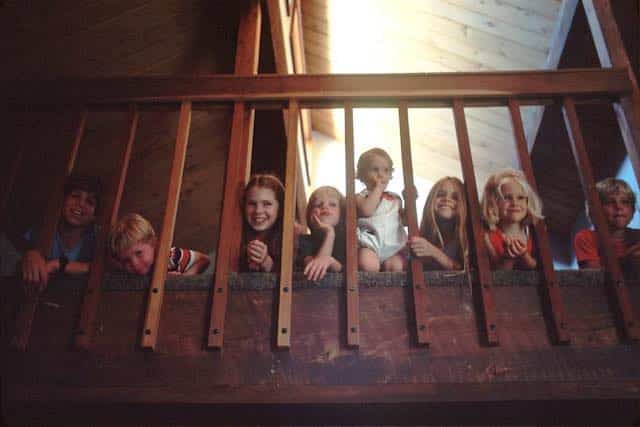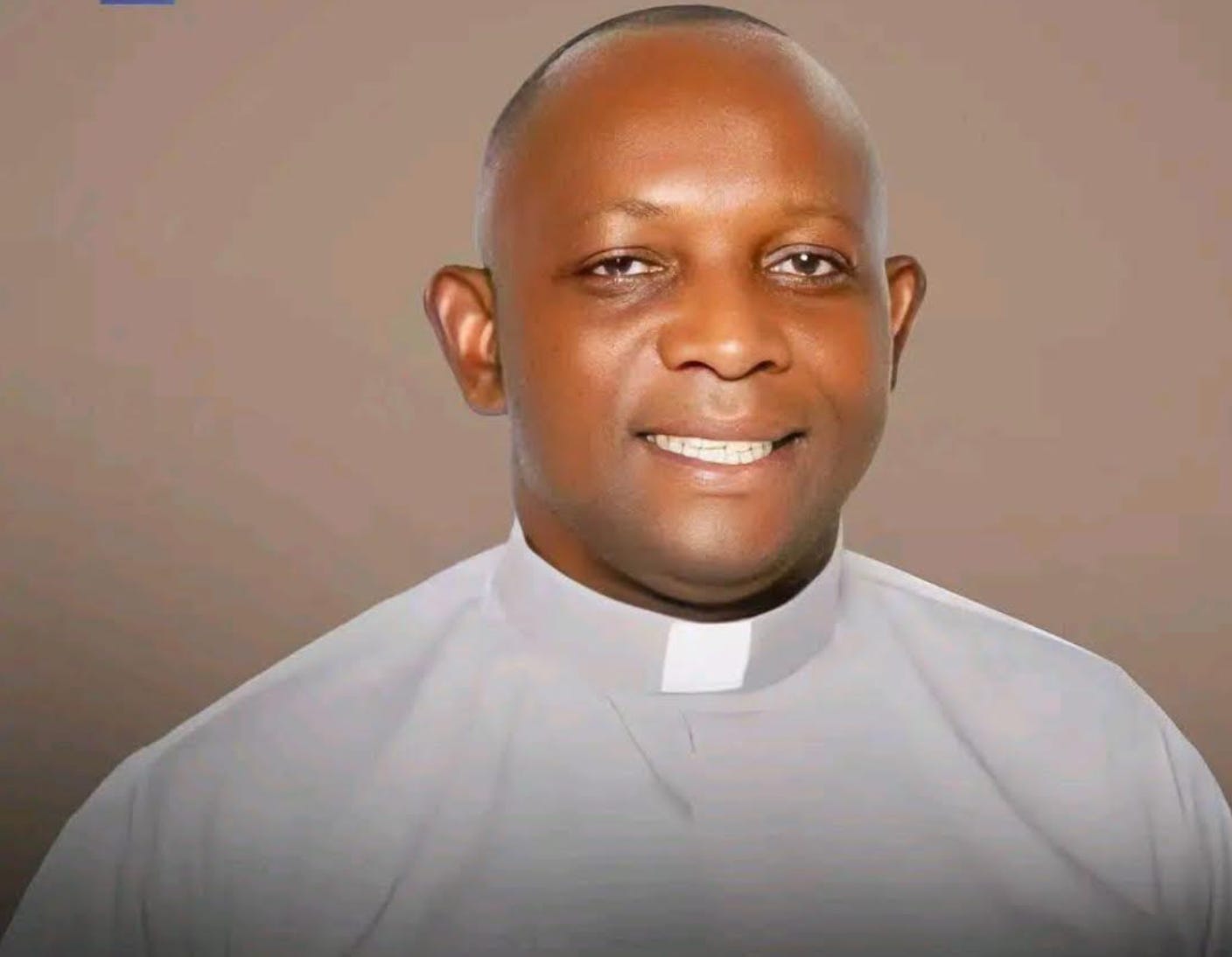Catherine Pakaluk discusses religious influences on mothers choosing to have lots of babies
It is old news that birth rates are falling in Britain and across the West. And yet, despite this, discussion around fertility rates is only just becoming mainstream in the UK. While a few of our politicians begin to ask why women are having so few children, Catherine Pakaluk, a social scientist, Catholic mother of The post Catherine Pakaluk discusses religious influences on mothers choosing to have lots of babies appeared first on Catholic Herald.

It is old news that birth rates are falling in Britain and across the West. And yet, despite this, discussion around fertility rates is only just becoming mainstream in the UK.
While a few of our politicians begin to ask why women are having so few children, Catherine Pakaluk, a social scientist, Catholic mother of eight and associate professor at the Busch School of Business at the Catholic University of America, has sought to answer the inverse: why do some women choose to have lots of children?
In her new book Hannah’s Children: the women quietly defying the birth dearth – the book takes its name from the biblical Hannah who God rewards with five more children once Hannah gives her first son, Samuel, in service to the Lord – Pakaluk presents her conversations with more than 50 university-educated mothers from across the US who each have five or more children. Did they always want a large family, she asks? And, once a sizeable number of children had been reached, why did they want even more?

The women’s answers to such questions are thought-provoking and beautiful – one can hardly deny the self-sacrificial love the mothers embody. Coupled with Pakaluk’s own reflections and analysis (as a Harvard-educated mother of many, Pakaluk boasts the qualifications to tease out edifying insights), Hannah’s Children offers a valuable contribution to the discourse on birth rates, complete with policy suggestions.
“Many countries have experimented with aggressively pro-natalist public policies, and all of them have failed,” notes Regnery, the book’s publisher. “Pakaluk finds that the quantitative methods to which the social sciences limit themselves overlook important questions of meaning and identity in their inquiries into fertility rates. Her book is a pathbreaking foray into questions of purpose, religion, transcendence, healing, and growth – questions that ought to inform economic inquiry in the future.”
After Catherine Pakaluk agreed to speak with the Catholic Herald, we discussed her views on the likes of the influence of biblical values, why one might find bigger broods at the Traditional Latin Mass and how the Catholic Church might support larger families:
In Hannah’s Children you argue that without religious formation that fosters “biblical values” low birth rate trends will not be reversed. What do you mean by biblical values and how will this lead to higher birth rates?
By biblical values I mean the conviction that children are blessings and expressions of God’s goodness. I mean that God created the world and knows what’s good for us. I mean also that God desires us to participate in giving life, and that He pledges to provide for us and for our children and our children’s children. These are ancient teachings, handed down to us from the book of Genesis to present times.
Today, children have little economic value for households – they aren’t labor for domestic enterprises or agriculture. They don’t provide old-age support. In fact, because children require full-time care for many years, there is even an economic loss to the household – giving up labour income to stay home with little ones. The economics of having children doesn’t make “sense”. Families might have one child, or two, to have the “experience” of being a parent. But to go beyond that, some other source of value is required.
Aristotle said, people don’t give up something unless they are better in at least one respect. Having children means giving up a lot [in] modern terms – what might provide a rationale? Certainly, [there is] the biblical view that a child is a blessing, an expression of God’s goodness. A family convinced that children are blessings from God may well consider going beyond one child [and] such a family might have another and another, because why would you put up obstacles to receive blessings? Biblical values lead to higher birth rates because they tip the scales in favour of having children.
As a Catholic mother of eight, in your personal experience do you think the Church could do more to encourage large families?
Yes, I do, but not in the way that might be imagined. Of course I do think that priests could speak about it more, and that our pastoral work needs to centre more on the value of children. But actually I do not think that large families will become normalised in the Church again until there are vibrant and visible religious orders in the dioceses.
Motherhood and fatherhood are spiritual characteristics before being physical realities. We need spiritual mothers and spiritual fathers to nourish the appetite for motherhood and fatherhood among us. Thanks be to God, new religious orders are coming to be, and are growing rapidly in some countries, and a new day is dawning for the Church. We should do whatever we can to support the orders, welcome them into our parishes, and raise awareness of their virtues and good works.
The Catholic Church teaches against the use of contraception. But even amongst practising Catholics in the West, few have five or more children. Why do you think more Catholics don’t choose to have large families?
I think it’s a lack of faith, actually, faith in those same biblical values and in the God who is author of reality. The teaching against contraception isn’t true because the Church teaches it. Rather, the Church teaches it because it’s true. To have a large family in a contraceptive age you have to believe that openness to life is a positive moral good.
I do not think the Church’s pastoral work has focused on this. She has developed a lot of materials and resources to explain what’s “wrong” with birth control. But she’s spent relatively little time promoting the positive vision, and teaching about it. The emphasis is on the rules, and not the end [point] of the rules. The end [point] of the teaching is that we would, as the marriage rite says, “accept children lovingly from God”. This leads to many other blessings for couples, not merely the blessing of children. Blessings for their marriages, for their families, for their neighbours and friends, countries and the Church besides.
Did most of the mothers featured in Hannah’s Children show an affinity for tradition? If so, why do you think this is the case?
Yes, I think they did. Most of the women were not Catholic, but, yes, I think tradition was important for many of them. One woman, Hannah, talked about how childbearing connected her to all of her ancestors, as a link in [a] chain going back to Noah and Adam, and forward in time to her offspring. Childbearing is the incarnate tie that binds across generations. When you come to see motherhood in that way, love for tradition seems natural I think.
Traditional practices allow us to live the present united with our loved ones in the past; loved ones who gave us the gift of life and the possibility of supernatural life. And tradition, when good and holy, testifies to the wisdom of God, as does openness to life. Childbearing, like tradition, proves itself over time in ways that evade human design and expectation.
US Catholics have a total fertility rate of 2.3, but US Catholics who attend the Traditional Latin Mass have a total fertility rate of 3.6, more than double the national average. Why do you think Catholics who attend the TLM tend to have more children than those who attend the Novus Ordo?
I would like to highlight the role of faith again, but here just in a simple way. The Novus Ordo is the ordinary form of the Mass, and so, presently, it’s a “default” for any Catholic of any kind – someone raised Catholic who doesn’t go to Mass frequently, someone who goes out of habit, someone with poor formation who considers himself Catholic. So the Novus Ordo attenders includes everyone – with strong or weak faith.
By definition, since the Traditional Latin Mass is not ordinarily found, anyone attending a TLM Mass has to seek it out – usually from a great devotion to the Mass, to the Eucharist, to the history of the Church. So, the TLM attendees do not include everyone – only those with strong faith. So, I think the numbers reflect more the status of the TLM as an extraordinary form. Naturally, families seeking something extraordinary may be, in themselves, somewhat extra-ordinary in other respects; in this case, faith in the living God and in traditional biblical values.
(Photo by National Cancer Institute on Unsplash.)
![]()
The post Catherine Pakaluk discusses religious influences on mothers choosing to have lots of babies appeared first on Catholic Herald.














